- Home
- >
- News/Press Release
- >
- Learnings from the pandemic
Learnings from the pandemic

For us in the Property Section, we decided to start the year that would mark the Philippine Daily Inquirer’s 35th year with our first Property forum. It was a year that was supposed to bring the promise of bright, rosy prospects for a highly dynamic real estate industry.
Then the announcement came. Much like everyone else, we were in denial. Days under quarantine turned into weeks, then into months and finally, we conceded—COVID-19 is different (an understatement, yes). No one was prepared. We were all caught off guard—the property developers and also us, at the Philippine Daily Inquirer. It was an unprecedented crisis that had everyone stumped and made all of us go back to the drawing table, realizing that no plan, innovation or strategy would prove to be enough for the really “big one”.
But that’s where the greatness and beauty of the real estate sector lies—in its ability to effectively adapt to the times, and to handle with such grace every curveball thrown its way. Companies managed to adapt and innovate to help cushion the blow dealt by the pandemic.
The COVID-19 may have upended our lives, but it also encouraged us to see things in a different light, to find creative ways to thrive in the new normal, and to appreciate our homes, friends, family and jobs even more. We thus continue to report and salute our friends in the real estate industry as everyone slowly bounces back amid this unprecedented crisis.
On Inquirer’s 35th year, we give you 54 pages—an extensive spread filled with a rich, eclectic mix of property news, industry outlook, trends, innovations as well as key learnings from the pandemic. This massive issue which we have painstakingly created for you would not have been possible if not for the trust and support of our readers, partners, sources, contributors, and advertisers. We are deeply overwhelmed by the support you have constantly given us, taking our calls, answering our texts and giving us more, even while your own companies are also being battered and challenged by COVID-19. To all our contributors who tirelessly write for us, a big thank you to you. To the Inquirer family, let’s continue to strive to be the voice and the choice of the people.
Indeed, the conversations we had earlier with one good man proved to be true and useful: one must always take the higher ground because if you decide to do so, no matter what happens, you will manage to navigate everything that comes your way with grace. And yes, he was also right when he said that one must always have the intellectual, physical and mental stamina to get through every difficult period.
In the following pages are learnings and important lessons from industry stakeholders, who shared how they managed to survive and thrive amid the pandemic.
Flexibility to counter unpredictability
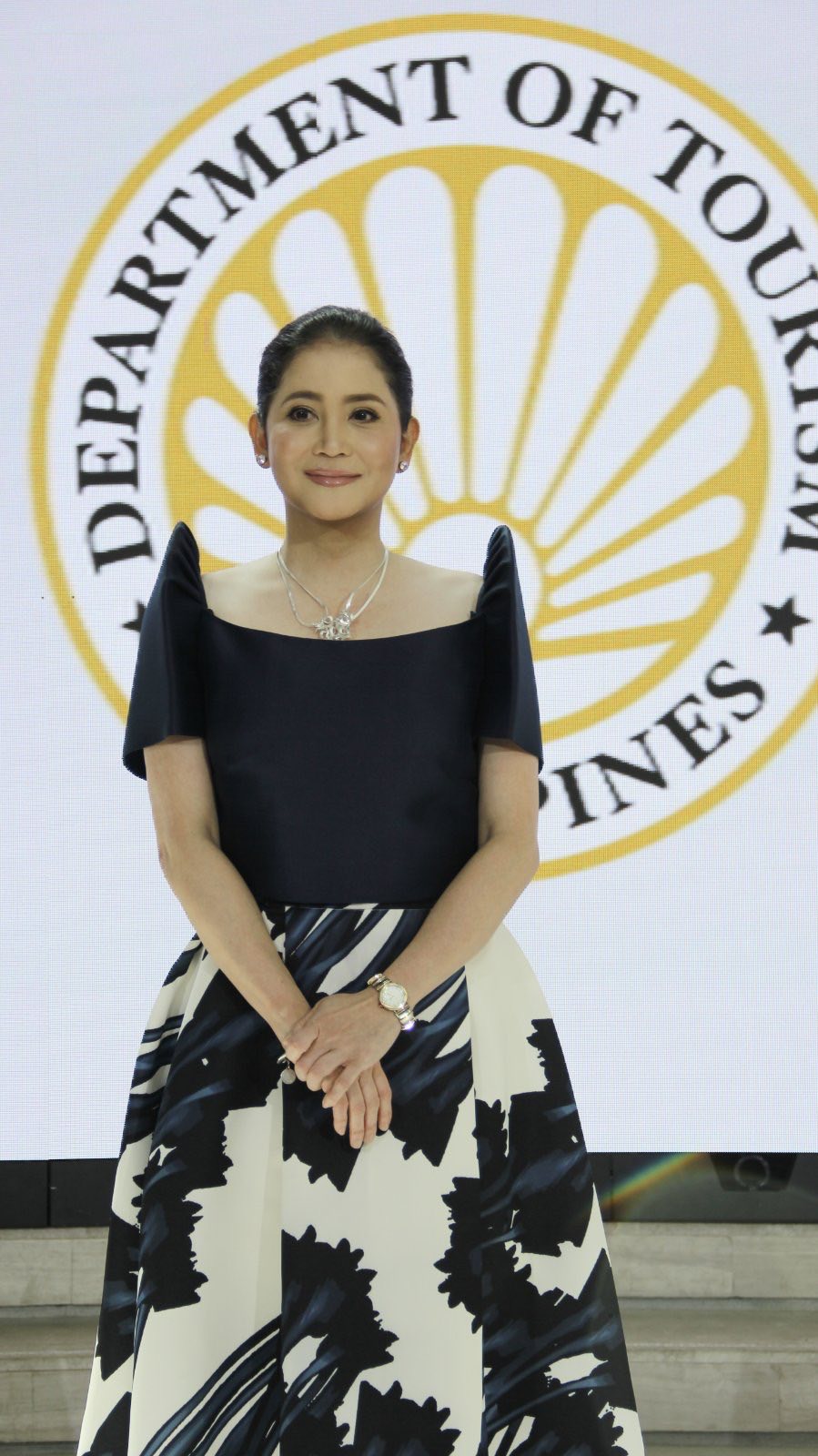 Bernadette Romulo-Puyat
Bernadette Romulo-Puyat
Secretary
Department of Tourism
The unprecedented COVID-19 pandemic came as a surprise, and along with it came many challenges to overcome. Naturally, I was worried about our country’s economic security, as well as the state and future of the tourism industry and its stakeholders.
The pandemic affected my daily routine and I had to adapt a work-from-home set-up, unlike before when I was always on the ground. Being reminded of our physical fragility also made me realize how unpredictable life can be and that we should always hold dear what matters most: health, safety, and our community of loved ones, family, and friends.
Fortunately, modern technology allows us to connect with one another, even while isolated. Sharing this experience with others has helped me get through it as best as possible. Remaining in contact with family and friends while ensuring that the Department of Tourism ran smoothly despite the circumstances kept me occupied. I am thankful to have both a great personal support system in my wonderful family and dear friends, as well as a hardworking team at the DOT that I can always count on.
The pandemic taught me to adapt to various situations in order to carry out my duties as DOT secretary. Since the start of the lockdown, my work has required me to do away with my routines and learn new things such as doing cashless transactions and online meetings. Learning these new skills has also taught me to think outside the box and find creative ways to safely reopen our tourist destinations.
Becoming flexible to new situations will be important in the new normal given the unpredictability of circumstances. This will help us respond more efficiently to our stakeholders and address future challenges.
Investing in resilient infrastructure
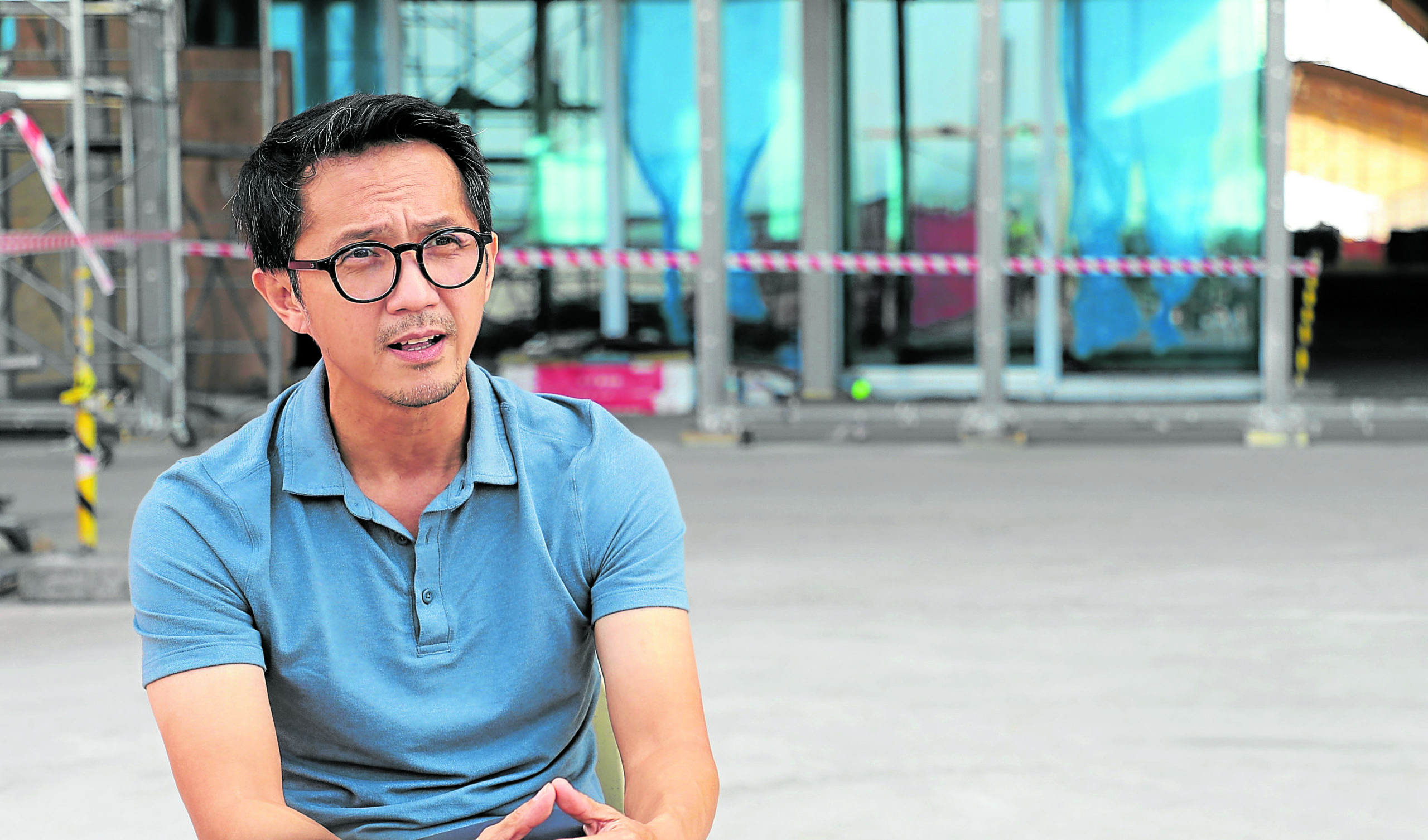 Vivencio Dizon
Vivencio Dizon
President and CEO
Bases Conversion and Development Authority
(The pandemic) has taken its toll on me and my family, both physically and emotionally because of the weight of the responsibilities of implementing flagship projects, leading BCDA, and helping out in the government’s COVID-19 response all at the same time. By far, the toughest task is the COVID-19 response because of its enormity and impact on the country and lives of our people. But we just have to fight on.
This pandemic has forced all of us to adapt in many ways—the way we connect and engage with people, the way we work, the way we take care of our health, and basically, how we will be able to quickly bounce back from these challenging times. I just keep on working, choosing to focus on the things we can control rather than those that we can’t.
We are not alone in this fight, and it’s important for everyone to be a team player in this battle. Many of our kababayans are bravely serving as COVID-19 front-liners amid the risks while conglomerates like San Miguel, ICTSI, Filinvest, Ayala, SM, Robinsons, Aboitiz and others have all pitched in to help the government as part of our whole-of-society approach, which is the most effective way for us to overcome challenges no matter how enormous.
The government should always plan ahead and be ready to respond to any and all emergencies. This pandemic also highlights the need for resilient infrastructure and development of cities outside the capital region, where it’s already too congested. We shouldn’t just rely on our people to be resilient—it’s up to leaders in government to pour in and drive investments towards resilient infrastructure.
The ability to bounce back has always been inherent in the Filipino culture but planning ahead and cohesively is something our government should continually work on to keep our country strong.
Culture of leadership, malasakit
 Bernard Vincent O. Dy
Bernard Vincent O. Dy
President and CEO
Ayala Land Inc.
During the enhanced community quarantine, just like most people, I had to adjust to doing everything at home—from work to leisure activities. When we transitioned to a general community quarantine, I started going back to the office but still had to do most communications via video conference. This took some getting used to since my preference has always been face-to-face conversations and meetings.
I believe the key to success during this pandemic is to have the right mindset. First, quickly accept that the world has changed; second, recognize that this crisis will eventually come to pass but will inflict pain; and finally, to survive and thrive, immediately create and roll out a plan specific to the current crisis to rally everyone in the organization.
All throughout the lockdown, I tried to maintain a routine to keep me focused on the implementation of our company’s five-point action plan to mitigate effects of this pandemic. I was fortunate to be working with a team that was ready to meet the challenge head on.
I am grateful for the culture of leadership and malasakit in our company, which our people have fostered over the years. It is through our collective efforts that we are turning this challenging situation into proud moments, especially in keeping our employees safe and secure; in servicing our customers; and in helping others during this difficult period.
No matter how good things are, always watch out and prepare for tail risks—low probability high impact events. It is also important to develop a strong culture of malasakit in the organization so that you can depend on the whole team during difficult periods. Lastly, cooperation between stakeholders must be sustained because this will not only help lessen the negative repercussions of this crisis, but will also greatly assist our country’s continued progress.
Adapting to the new norm
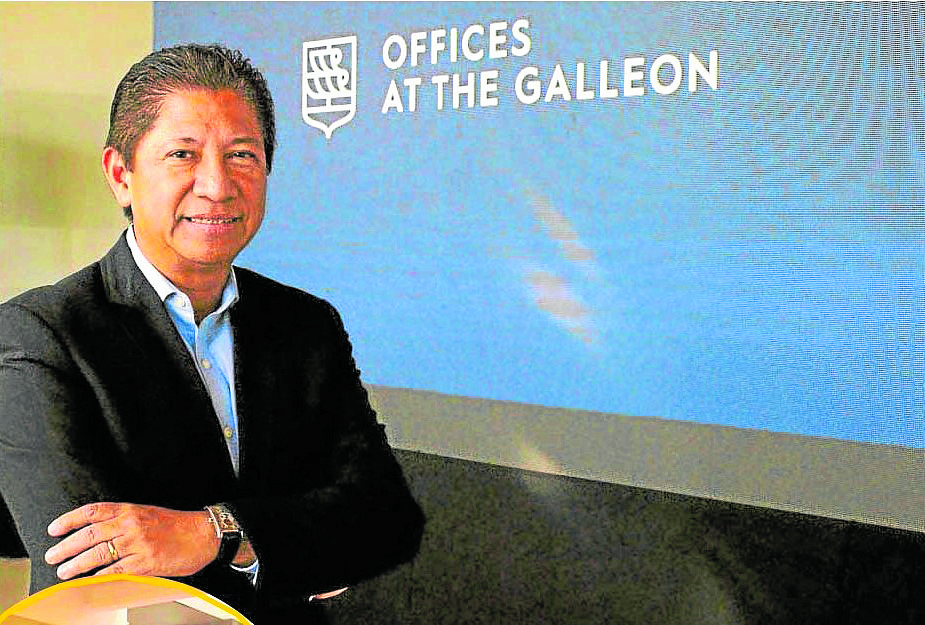 Jaime E. Ysmael
Jaime E. Ysmael
President and CEO
Ortigas Land
As was the case with other industry players, the pandemic negatively affected the performance of the company. The health crisis quickly turned into a crisis of confidence that dampened the consumption and investment appetite of consumers and businesses, respectively, leading to an overall decline in economic activity.
The pandemic further tested the mettle of the organization, with our people having to endure and navigate through the ill-effects of the crisis, while working as one team towards preserving the value of the company and adjusting our business plans and priorities. It also led us to immediately adapt to the new norm by changing the way we conduct our business and accelerating our digital transformation initiatives to more effectively and efficiently connect, engage and serve our stakeholders in this “low touch economy”.
We were fortunate to have a diversified portfolio of businesses which served to cushion the impact of the pandemic. While mall leasing revenues tanked, office leasing continued to be resilient despite the challenges. While property sales slowed down, our projects continue to sell given the nature, location and positioning of our products.
We also drew our strength from a stable balance sheet, with resources and credit continuing to be available to fund ongoing projects, while we implemented a tight rein on our finances and spending plans. Of course, our long history and track record of successful developments, being in the business for 89 years, and our strong brand served us well in our dealings, while we adhere to our time-honored values of relationship, excellence, innovation and integrity.
Having the right people with the requisite skills, agility, grit, resilience and positive attitude is also critical—crisis or no crisis. At the end of the day, our people are key to business survival, as we rely on them to develop and execute the actions necessary to preserve and enhance the value of the company. We therefore need to take care of them, train them well, inculcate in them the spirit of teamwork and develop that positive “can-do” attitude.
The pandemic also emphasized the importance of addressing the needs of the broader community—our stakeholders, who form part of the ecosystem where we operate. We need to ensure that we take care of the needs of our customers. employees, service providers, business partners and the communities where we operate, aside from addressing the needs of our shareholders. The ability of the company to survive and eventually thrive depends on how well we support each other in an interconnected market.
Putting pandemic lessons to good use
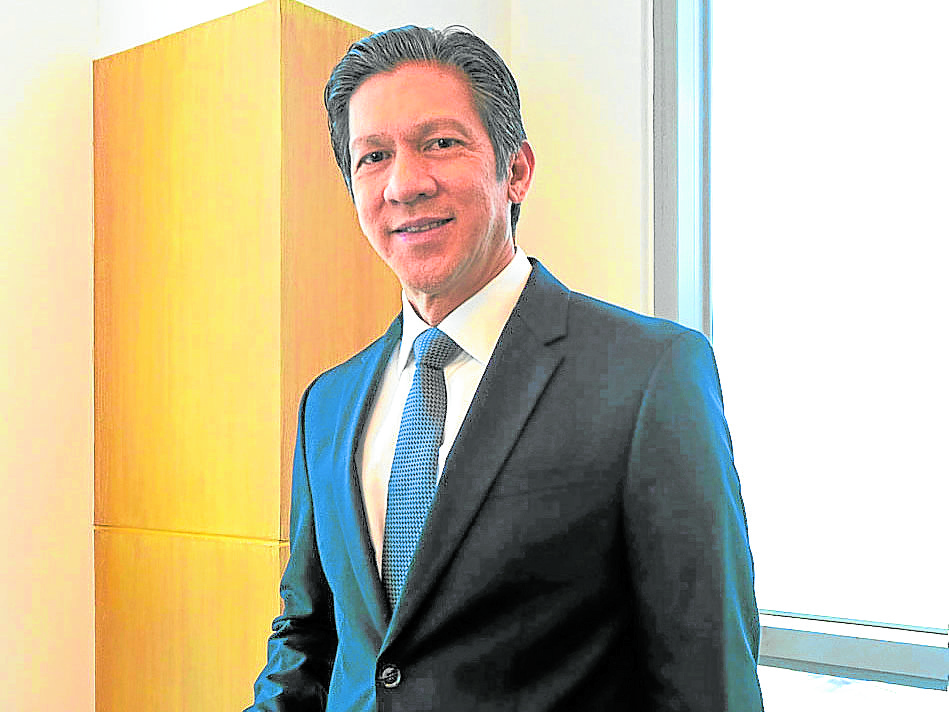 Jose Mari Banzon
Jose Mari Banzon
President
SM Development Corp.
SMDC has not been spared by the turmoil brought about by the pandemic. We had to close our offices and let our employees work from home for almost three months.
Thanks to the internet, we were able to keep operations going. Our sellers continued to sell using their social media accounts. We provided them funding to boost their websites and reach a larger audience. Our backroom continued to operate remotely. We provided our employees with laptops and pocket WiFis for their homes. Our executives continued to manage and lead their teams, maintaining open communications and providing coordination virtually.
As a result, our sales for the first six months of 2020 have been higher compared to the same period last year. We were lucky. But we were also prepared.
Anticipating the work-from-home (WFH) trend, we adjusted the design of our condo units by incorporating a work area in the unit and co-working spaces in the common areas. We are also putting strong, high-speed internet connections in our developments to ensure uninterrupted, commercial grade connectivity. A commercial strip, which is a standard feature in our developments, is ideal for WFH as the residents are able to get everything they need without leavng the complex.
We looked for ways to address the emerging needs of our communities. In addition to the existing programs under our The Good Guys campaign, we implemented initiatives such as The Weekend Market; personalized shopping services for the elderly and PWD residents; and health and wellness caravans to provide health services to SMDC residents, among others.
If there is anything that this pandemic has taught the real estate industry, it is that development must proceed with location, convenience and connectivity foremost in mind. Real estate is the best option for investors—the pandemic has shown that. The real estate industry has learned a lot from this pandemic and will put the lessons to good use in the days ahead. Fortunately, the worst of the pandemic appears to be behind us. We can overcome this crisis and we will.
Right culture is key
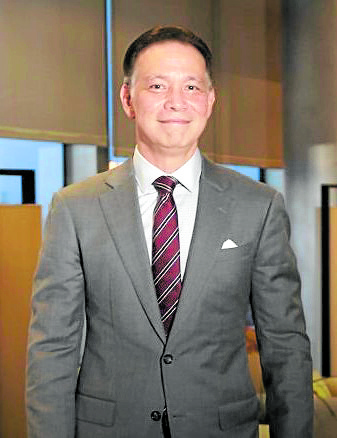 Thomas F. Mirasol
Thomas F. Mirasol
President and COO
Federal Land Inc.
Fortunately, neither myself nor anyone in my family had been affected health-wise. But the economic impact of the pandemic has affected everyone. Accepting the circumstances for what they are and purposefully taking steps to manage them allowed me to enjoy some control over what “life” evolved into this year.
Keeping physically and mentally strong was a key priority, so I made some changes to support this. But being able to devote most of my time towards my work helped tremendously. I focused on the tasks at hand rather than spend time simply fretting. I am fortunate to work for a company whose principals place great value on helping people. Other than that, I make an effort to keep in touch with family and friends remotely as best as I can, trying to keep things as “normal” as possible.
Being prepared for eventualities especially for problems that you can’t anticipate (is one of my key takeaways from this pandemic). It was a revelation to see how quickly circumstances can change. Unless you were already prepared either by chance or foresight, it was those organizations that could adapt rapidly to new situations that out-performed their peers.
Culture is key and this applies to companies as well as to communities. Groups that have a strong culture of doing the right thing, acting quickly, helping each other and taking personal responsibility will always have an exceptional advantage. But sustaining that culture remotely is a challenge, so having traditions and values as permanent guides and ensuring lots of communication up and down the line should not be taken for granted.
Faith in his people, in humanity
 Nestor J. Padilla
Nestor J. Padilla
President
Rockwell Land Corp.
It’s your family (that would inspire you to continue despite the pandemic). I’ve never spent this much time with my family—it’s one of those rare opportunities that if COVID-19 didn’t happen, these would never have happened. Each year, prior to COVID-19, you go on with your life and you only spend x amount of time with your family. But with COVID-19, all of a sudden, it’s the reverse. If there’s anything that made you realize that life is worth living to its fullest, it’s your family.
When March happened, it was just like your adrenaline kicks in and you just have to take charge. I mean, who’s going to take charge, everyone’s scared, right? So that’s where you will see that your hierarchy in the organization isn’t what it really is in terms of crisis. You will have people from different levels in the hierarchy who will step up and you will realize that there’s a few of them you have never discovered before. As the saying goes, during good times, everybody’s an expert. During hard times, that’s where you will know the difference. But this one, COVID-19, is not just hard times—it’s a crisis. You will also realize that you have a few people around you who will truly go beyond what you expected to have. These people are why you continue to make sure that the business thrives, because you give them a chance for better life. COVID-19 is different because here, you could have a kiss of death. We’ve talked about physical, emotional and mental stamina. But here, you will need every kind of stamina including monetary stamina.
But the goodness in humanity came out—you see so many of that, we should never forget that. The only danger is that when all of this is over, people will forget. We should try very hard not to forget what these last nine months have taught us.
On being ‘crisis resilient’
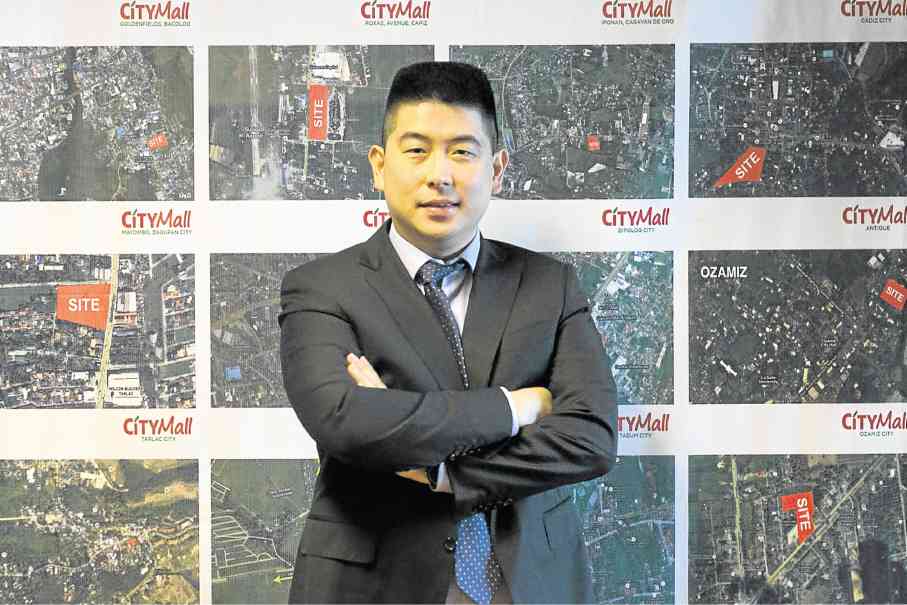 Edgar “Injap” J. Sia II
Edgar “Injap” J. Sia II
Chairman
Double Dragon Properties Corp.
I think what became useful for myself and our team to navigate this pandemic is the stamina that was naturally built up over the past many years. Starting new businesses in this day and age when there are large mature competitors around you brings about a series of challenges and obstacles as you grow, expand and penetrate the market. But looking back, those endurance-raising experiences have in some way helped us navigate through this COVID-19 crisis.
I have had many realizations during this pandemic, one of them is that the future is really uncertain no matter how you prepare. I have learned that the key is to focus more not on being crisis proof, but rather on being crisis resilient.
The magnitude and extent of this global pandemic caught everyone off guard—no one has expected and really prepared for it. The same scenario may happen again in the future, and no matter how people would prepare, it may still not be enough to bulletproof yourself or your business. Who knows, the next major virus crisis could be in the cyberspace that no matter how the tech companies has prepared for, may not just be enough.
I have also realized the importance of being comfortable with the basics in life. I reminded my teenage boys that while it is comfortable to drive an automatic transmission vehicle, it would be vital to know how to drive the inconvenient manual transmission too.
Weathering the storms
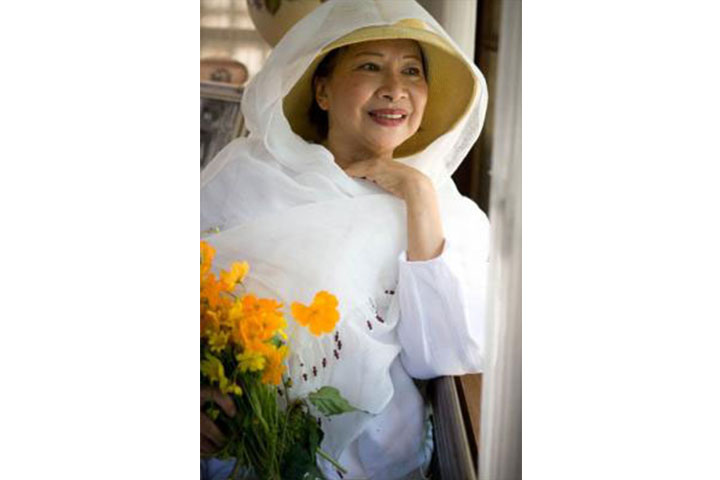 Sonya Garcia
Sonya Garcia
Owner
Sonya’s Garden
A bed-and-breakfast operation is basically a home-based industry. So long as you own the land and the facilities, you are protected from most economic disasters. At the end of the day, it is still your home. Most BnBs are also small in scale so they are naturally resilient and protected from the ROI demands of maintaining a highly capitalized operation like hotels or resorts.
Sonya’s Garden is a medium-scale BnB complex with auxiliary lifestyle outlets like a restaurant, bakery, spa and other retail operations, employing people from the nearby communities. These are the components of the business that were affected not only by the pandemic but also by the other natural disasters like the eruption of Taal and the consecutive typhoons which tore through Central Luzon.
Because of the pandemic, we had to downscale and suspend some of our operations until we were allowed to fully open. Staff had to return to their original livelihood of farming which also provided for their needs during the long shut down. In the service industry, the people need to be resilient for the business to also be the same. In this regard, Sonya’s BnB is fortunate to be back in operation after a long hiatus and the hope is that this experience will give us the strength to continue to weather the storms that may lie ahead.
‘No one gets left behind’
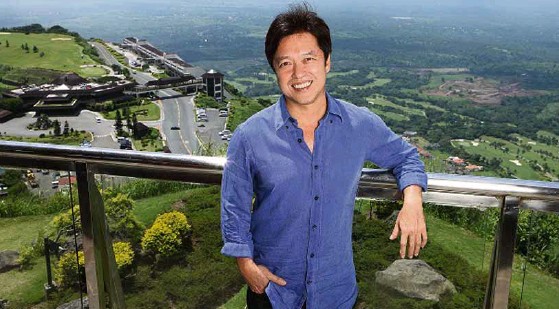 Willy N. Ocier
Willy N. Ocier
Chairman and executive director
Belle Corp.
In response to the challenges caused by the COVID-19 pandemic, Belle Corp. has identified critical functions, activated our business continuity plans, and implemented cost saving measures.
The company’s goal has been to ensure that we maintain long-term viability by continuing to mitigate potential risks, while looking after the overall interest of our investors, customers, employees and other stakeholders. Our plan includes implementation, execution, and enhancement of mitigation measures to limit operational and employee health risks. This includes a work-from-home scheme for qualified employees, healthcare monitoring, and a system for internal and external management of information.
The company likewise continues to exercise fiscal prudence and organizational right-sizing. Tagaytay Highlands, our flagship project, became a sanctuary for many members and homeowners as soon as the community quarantines were relaxed. Tagaytay Highlands has remained open, while observing full compliance with relevant IATF regulations.
Our board of directors has provided guidance on strategies to help preserve the company’s long-term viability, while management has actively rallied the company’s employees to implement these “new normal” measures to address the issues brought about by this pandemic. These strategies center on fiscal prudence, sustainable development through the conservation of the natural environment, prioritization of employees’ safety/wellness and adherence to good governance practices.
Our key takeaways: to continue to maintain fiscal prudence and to find opportunities that build on resilience and longevity. We need to constantly adapt and evolve with our employees and stakeholders in mind. Constant communication is pivotal, as well as engagement with local communities. We need to ensure that no one gets left behind.
Strive, thrive in the post pandemic era
 Emma Imperial
Emma Imperial
President and CEO
Imperial Homes Corp.
The real estate industry is one of the most badly affected industries by the pandemic. Our processes from the client-facing side to our back-end office were disrupted.
On the client-facing side, the economic impact of the pandemic made clients hold on to their cash, which affected our reservation sales during the first quarter of the pandemic. Tripping schedules were also affected because we had to practice social distancing and sanitization of vehicles for every prospective buyer, drastically reducing our visits. Construction was also slightly affected because of the restrictions on the allowed workforce. On the regulatory side, the quarantine slowed down our application of different loans and permits. On finance, there has been a decrease in the speed of loan takeouts, which has affected our cashflows.
Given all these challenges, our company has thrived in the pandemic by being digital, managing our cashflows, and pivoting our business model based on what the market is saying. For marketing, we were among the first developers to implement a full online sales experience starting from online tripping and reservation.
We tripled-down on our online marketing efforts and even launched our new product line during the pandemic. We have experienced an increase in year-on-year sales in the past few months because of the higher demand for solar-powered houses, given that many companies have shifted to a work-from-home arrangment. The restrictions for construction only highlighted the benefits of our Connovate technology, our plug-and-play high performance concrete technology, that allowed our construction team to operate with a minimal workforce.
The pandemic taught us the value of being an agile organization. It underscored that sustainability, resiliency, and health are the future—and so companies should make sure that their vision, mission, and core business are aligned to this new global economic direction.
Given this, we must adapt our organization to this new reality. The sooner CEOs realize this as a fact, the sooner their organizations can adapt, strive, and thrive now and even in the post-pandemic era.
Importance of townships
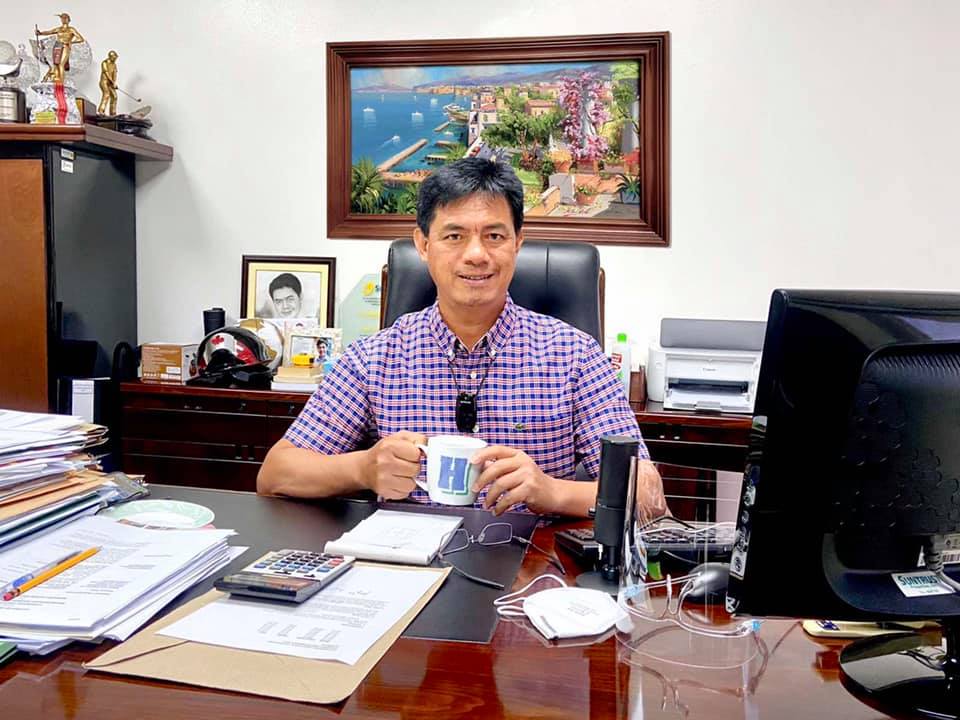 Harry M. Paltongan
Harry M. Paltongan
President
Suntrust Properties Inc.
The pandemic negatively affected all facets of our operations—sales, collections, operations, property turnover and management.
We are surviving and now recovering, learning the new ways of doing things especially adapting online and virtual methods. We also are focusing on how to support our front-liners. Anyway, shelter is also a basic necessity and whatever happens, its need does not wane.
We learned the importance of doing more township projects, where routine and basic needs are within walkable distance. And we will put emphasis on accessibility to healthcare facilities on or near such projects. We will pursue and further enhance technology which pushed all of us now to adopt.
Living graciously, with purpose
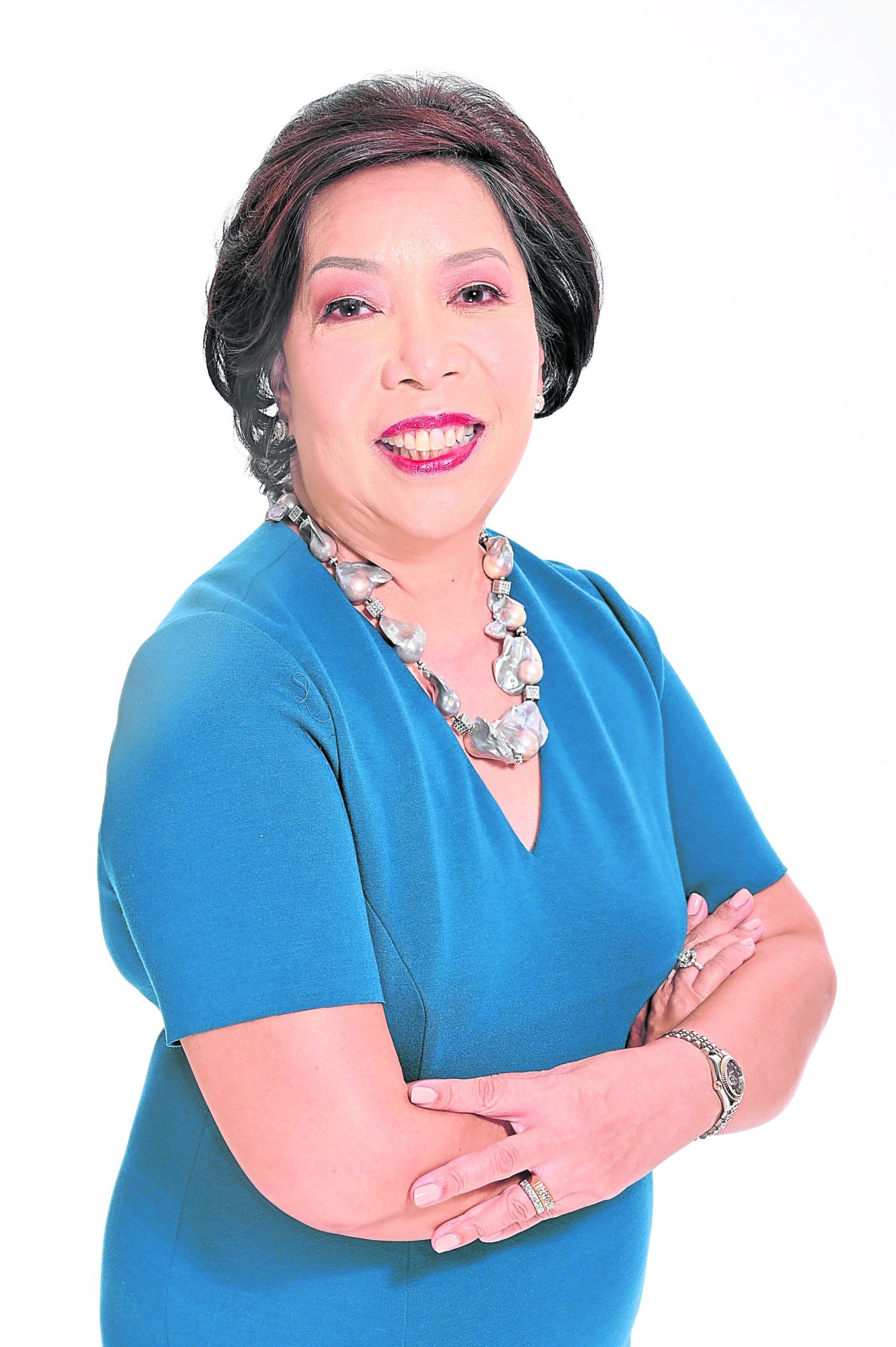 Rosemarie Bosch Ong
Rosemarie Bosch Ong
SEVP and COO
Wilcon Depot
The pandemic has upended our routines and lifestyles in all aspects of our personal and professional lives. At first, we found it difficult to adapt to the changes, and yet, we all know that we need to find a way to survive and thrive during this time. Being confined at home for the past several months, it feels like we are in discomfort.
But in a deeper sense, if you could have a change of mindset to one of gratitude, you would appreciate your time spent being at home—focusing on things that matter. Being at home offers a great opportunity to learn and explore something that you genuinely want to pursue.
As a leader, the COVID-19 pandemic has been testing us in new and unexpected ways. We are forced to work and live while navigating an uncertain world. While it was heartbreaking and challenging, I am proud of how we handled our company’s operations. This crisis is an opportunity to show resilience and adaptability. You can still see the opportunities it can bring into your business. There’s no reason you can’t thrive in the new normal. You just have to find the best response you need to take because “Attitude is everything.”
This pandemic has taught me to re-center my priorities. I am reminded of the importance of putting my family and relationship above all else and to give more attention in re-connecting and strengthening our bond. I have also learned to give extra attention to my health and wellness whether physical, mental or spiritual. The crisis has reminded me how precious life is and that I should be living it graciously and with purpose.
An opportunity to improve
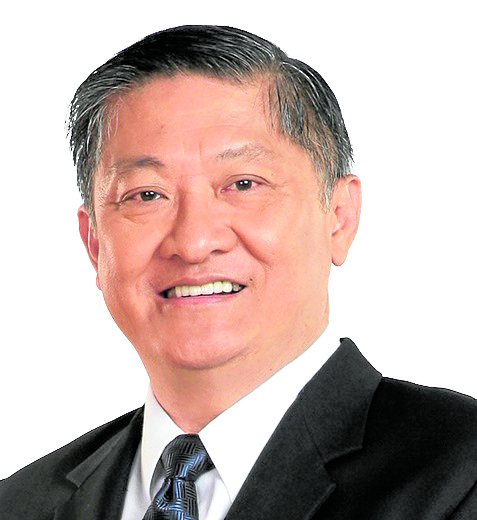 Guillermo C. Choa
Guillermo C. Choa
President
Property Company of Friends Inc.
I learned that the market adapts. People, before, used to go and do a lot of over-the-counter transactions. But today, we are very efficient because people just go online and transact with us. They send their payments digitally while they documents are sent either digitally or (via courier).
What’s important is that we should be able to not just react to this pandemic. We should also be able to see beyond this pandemic and say, what if we had the pandemic for the next five years? How much more efficient could we be? Can you imagine that we’re doing all these things not because we’re forced to but because we see these as an opportunity to improve ourselves? I think that’s the biggest learning and advantage of going through this pandemic. We now found ourselves with so much tools and (enjoying) so much beauty in life.
‘This too shall pass’
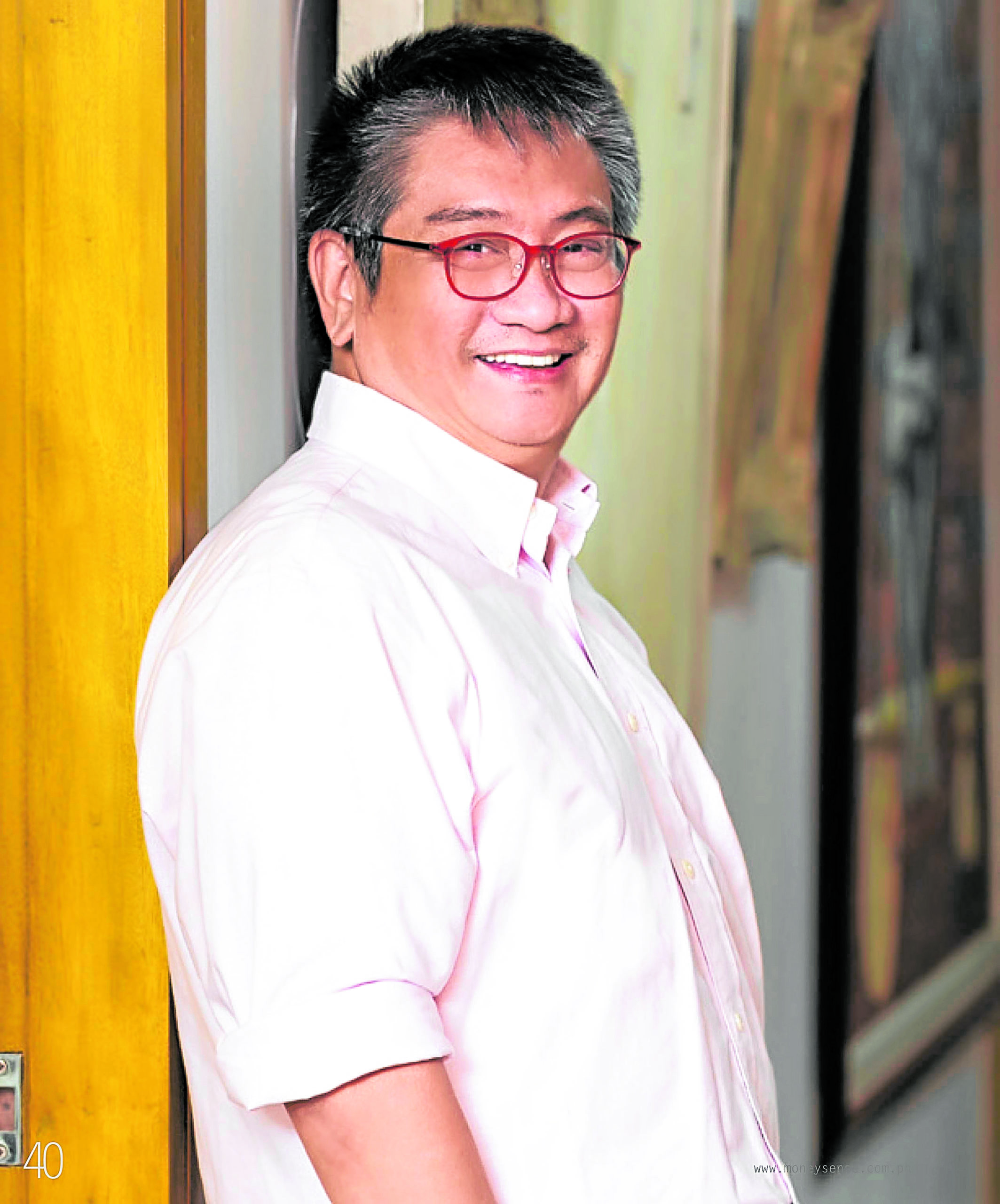 Januario Jesus Gregorio Atencio III
Januario Jesus Gregorio Atencio III
Chairman and CEO
Januarius Holdings Inc.
Our securities and equities investment portfolio suffered a 20 percent decline in value in the early part of the year. Our response was a “flight to safety” as we quickly liquidated selected positions to store up cash. And because of the stimulus packages brought about by the US and EU, the prices of stocks and bonds rebounded at the present time.
We also had to face the prospects that some of our renters and borrowers wouldn’t be able to pay rents or interest on time.
Having experienced political as well as financial crises in the past, I felt strongly that “this too shall pass”. Some of our most important learnings from the pandemic: that there is opportunity in crisis situations; that cashflow is king and overheads must be realigned with the new condition of our cashflows; and that we shouldn’t be afraid to make the difficult decisions.
Creating new generation developments
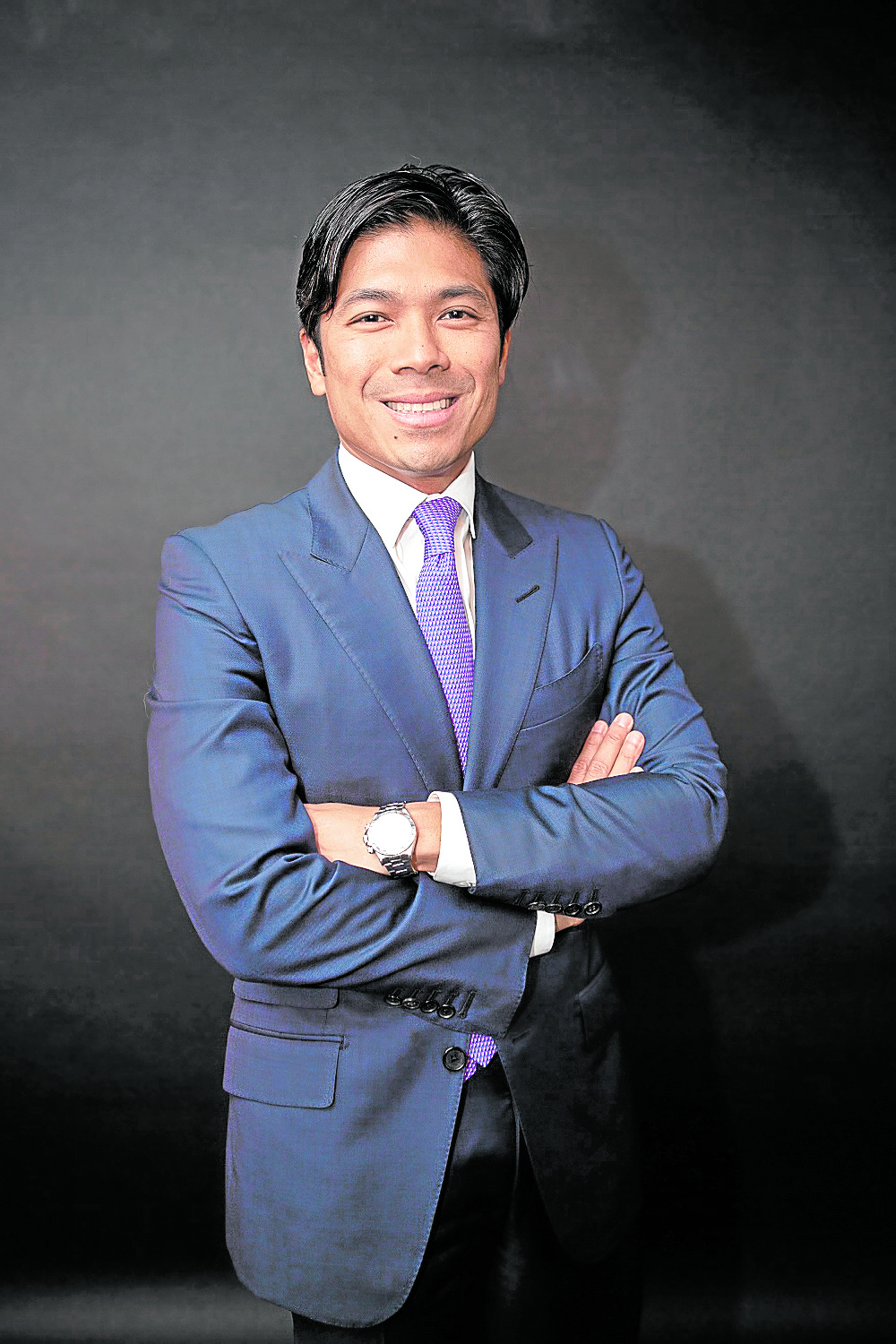 Marco R. Antonio
Marco R. Antonio
President and CEO
Century Properties Group
It has been a trying time for all of us—for our company and our people. Century Properties Group (CPG) was in the midst of ramping up its business expansion program early this year so things were in high gear when the lockdown started. The ECQ affected critical parts of our operations, specifically construction, which came to a full stop and did not resume until after more than three months.
For someone who helps steer the ship, I saw how complex and unprecedented this situation is with its profound and lasting impacts to society, economy, and human life. Every one of us has changed throughout this experience, and personally, it has broadened my perspective of things, taught me to adapt to change at a much faster pace, and to respond to situations more effectively rather than just react.
Preparing for and managing the things you can control allowed us to survive, thrive and navigate through the difficulties. This situation has a lot of variables, uncertainties and moving parts. You can’t over analyze and wait—you must be quick and decisive.
As an example, CPG formed a crisis management team earlier on to prepare for the worst-case scenario. This allowed us to act fast even prior to the lockdowns. We were able to prepare our employees for flexible work arrangements, ensure workforce safety through regular testing and safety protocols, as well as prepare living quarters for our property management staff to ensure essential services in our communities continue. We kept our communication lines open for customers even during the height of ECQ and we have accelerated our digital programs.
Century Properties has been through the worst times of the Philippine economy, surpassing various economic cycles and always emerging better as an organization. So when the pandemic struck, we forged on with the wisdom and experience of our leadership team; our peoples’ strength of spirit; our values of excellence, integrity, and passion; and our three core guiding principles of innovation, sustainability, and growth.
Our company’s performance is only as good as the health, safety, and well-being of our people. To this end, we have allocated resources to take care of our personnel, allow them to work with flexibility and protect them from unnecessary risks.
As the world continues to battle the pandemic, there has been a renewed call for balance and nature as well as living slower and focusing on what’s essential. These new sentiments and priorities will inform CPG’s new generation developments. We will endeavor to create healthy, sustainable, and environmentally conscious communities—ones with strengthened measures for safety, disaster resilience, and emergency preparedness.
Staying positive is key
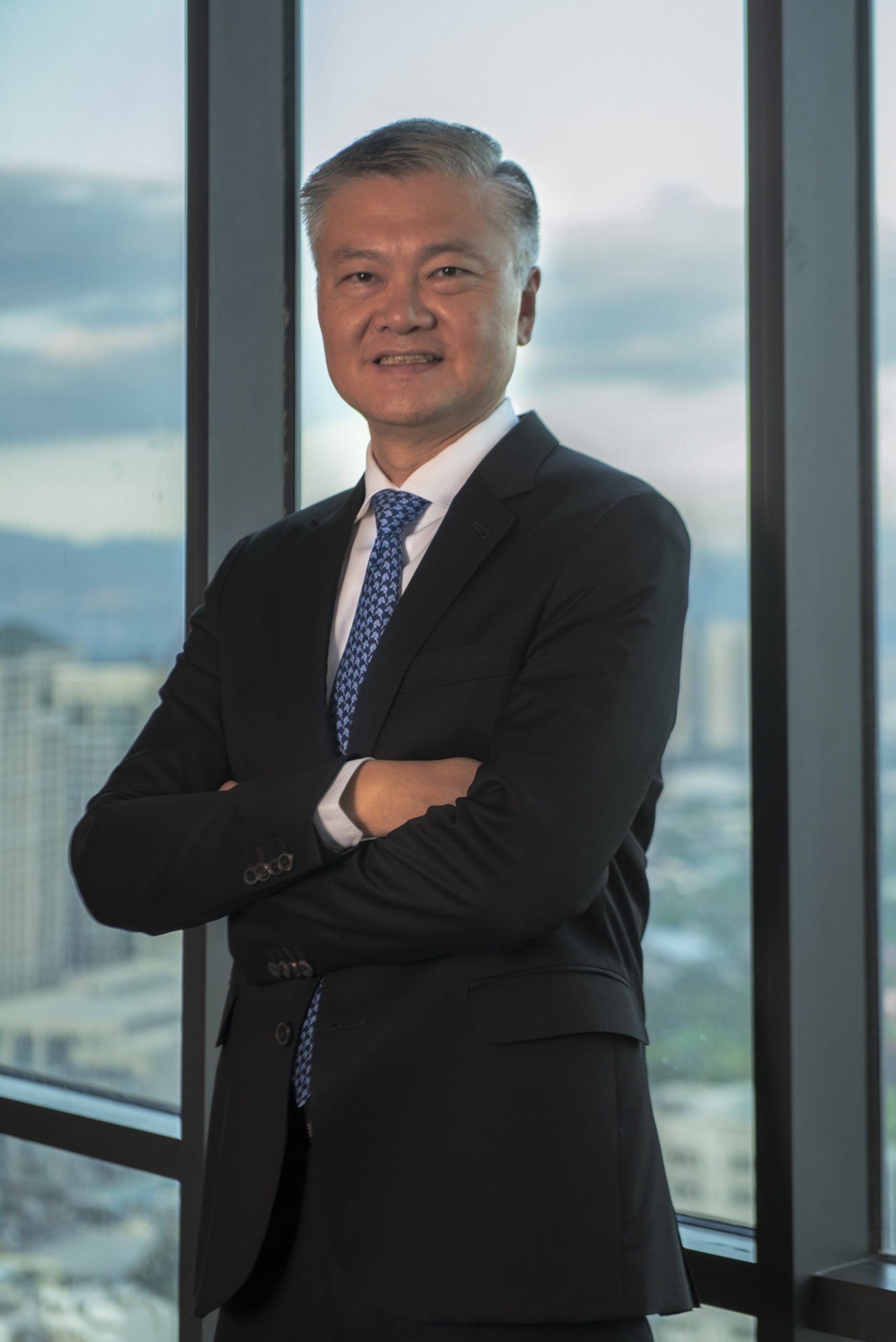 Jeffrey Ng
Jeffrey Ng
President
Cathay Land Inc.
This pandemic and the lockdown that followed were experiences unlike any other. It was tough adapting to a lack of freedom to move around and go through the usual routine of business meetings. But after a few days, I found myself adapting by expanding my horizons through books and videos on philosophy, stoicism and history that I never had enough time for.
I learned that staying positive is key. Through this experience, I had the opportunity to exercise daily, eat healthier meals since everything was homecooked, and spend more time talking to my family. Two months into the lockdown, I felt more fit, healthier, mentally rejuvenated, and more determined to face this pandemic head-on.
I have come to further realize that we must try to look at the bright side of any situation we are faced with. Though we all have our own approaches, we can always take advantage of opportunities especially if these will make us better people in the long run.
I learned to be grateful that my family and I are still physically and financially fine. But at the same time, I realized that many of our fellow Filipinos have not been as fortunate. Thus, as president of the UP School of Economics Alumni Association, we started an urgent fundraiser to give face masks, PPEs, among others to the medical front-liners in UP-PGH and other government hospitals. We also raised funds to give 50 laptops to deserving UPSE undergraduate students to enable them to study from home.
At Cathay Land, we try to also adopt these lessons by helping our clients find the most suitable home for the new normal. We are pleasantly surprised that there is a surge in demand for our lots and house-and-lot packages just south of the metro. A good example would be our 250-hectare South Forbes Golf City township.
A balancing act amid the crisis
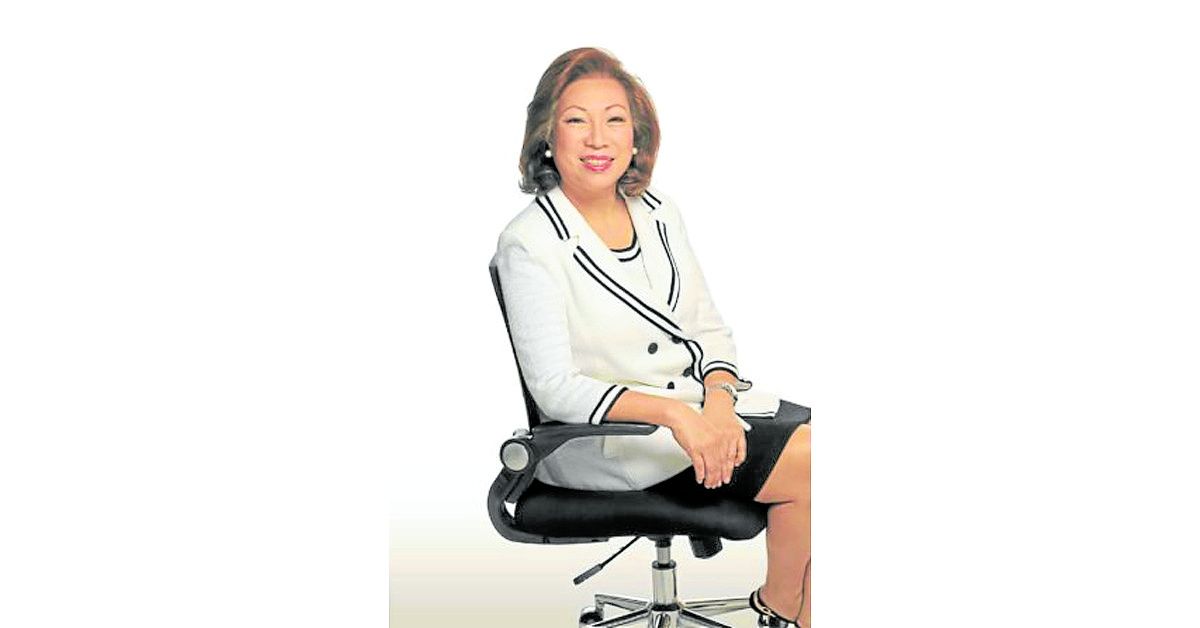 Josephine Gotianun-Yap
Josephine Gotianun-Yap
President and CEO
Filinvest Development Corp.
We are thankful that while the pandemic impacted some of the segments of the Filinvest group like hospitality, overall, the Filinvest group performed well with a low single-digit growth rate which is respectable under the circumstances.
First and foremost, we created a work environment where our Filinvest family would be confident to meet our customers’ needs given the proper digital tools. My participation with the T3 Task Force gave me a lot of insights in ensuring that the right health protocols were in place to protect our staff and customers.
Second, we adjusted to the new needs of our customers. We provided new services such as community markets and sanitation protocols for the convenience and safety of our homeowners. We continued to communicate with customers through online service kiosks. We were among the first to announce payment deferrals and retail rental waivers even before the Bayanihan Act was in place. Our commitment to a robust IT infrastructure and platform also allowed us to communicate and conduct our business at the height of the pandemic. We accelerated our digital plans in property and banking.
Third, as a result of the diversification strategies we put in place a decade ago, we balanced our revenue streams between the cyclical and the defensive segments of the business, thus allowing us to protect our earnings. On top of that, the unblemished 65-year credit track record of Filinvest underpinned the financial support from the retail bond investors and the financial community at large. This underlying basic foundation that was put in place many years before allowed us to survive and navigate this pandemic.
We have to be agile and resilient because our people and organizations are depending on us. It is important to balance three things—the safety and livelihood of our corporate families, the physical and financial security of our customers and business partners, and the public health of the communities where we operate.
More importantly, I learned the importance of unity and patriotism in times of crisis. I learned that finding ways to help and participate was more effective and useful to society. There will always be time later for stating what could have been done better in hindsight, but in a pandemic, working together, helping and moving fast are more crucial. I witnessed how the private sector worked hand in hand with the government in this fight.
Rising together, hand in hand
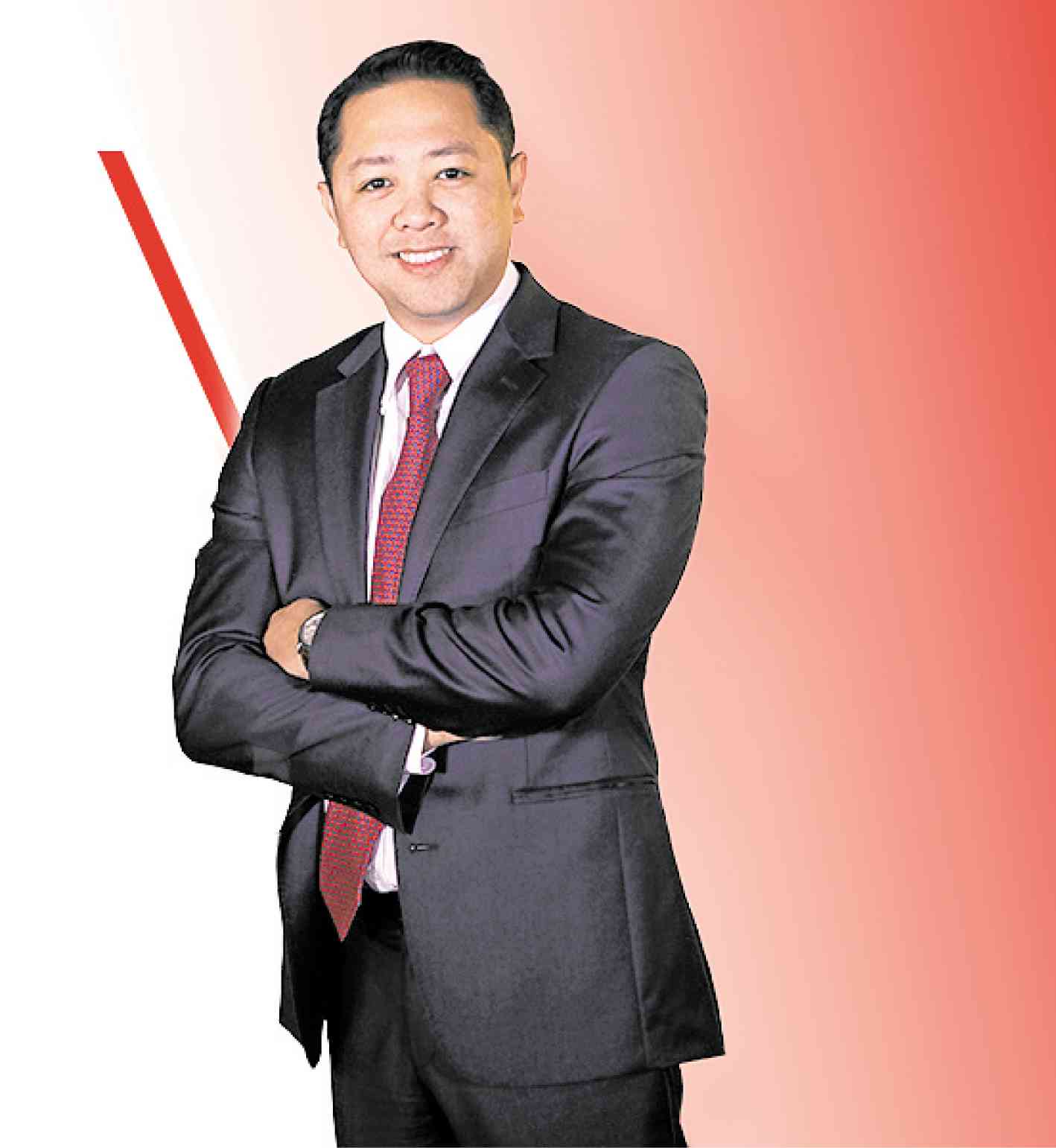 Louie Ferrer
Louie Ferrer
Managing director for transport
Megawide Construction Corp
For me, it’s having face-to-face human interactions–it got hit the greatest, because I work better in person. It’s easy for me to make the person I talk to become comfortable, and that is what makes discussions more fruitful. Non-verbal forms of communication like nuances or facial expressions add value to discussions and conversations.
I believe long-term engagements like building relationships and other things that matter the most should not be done in an instant. It takes time, especially in the Asian context. We like to establish a personal rapport with everybody we’re talking to.
These days, though, I have no choice but to use technology, especially with social media applications like Teams and Zoom. I learned that technology can give faster results. In an instant, I can be connected with anyone, anywhere in the world. I know it’s not only for my protection, but also for others. Later on, we could cultivate relationships with partners, stakeholders, employees, suppliers, and the like through a combination of face-to-face interactions, and through the use of technology.
On a personal note, COVID-19 hit my work and leisure travels as I used to visit our Cebu airport every other week. But it also allowed me to be with my family and enjoy simple things like cooking for them, exercising or singing together. Being with my family energizes me and keeps me on the ground. It was my first time to experience the world standing still. Pwede pala. I couldn’t imagine it happening in the fast-paced world or work place I was in before.
For our airport business, the pandemic hit us in many ways–in terms of our targets and the momentum for Mactan-Cebu International Airport. We were already in that direction, with Mactan having double-digit growth per year. Cebu has become a popular destination again and a good stopover to the most beautiful islands in the world.
Good thing is, I am optimistic that we will be back soon because of Cebu’s central location in terms of domestic travel, and our main foreign visitors—mostly Koreans, Japanese, and Chinese—have started recovering or are bouncing back. Our partner airlines have started to fly to Cebu again. We will all rise again, hand-in-hand, together.
Providing uncompromising quality
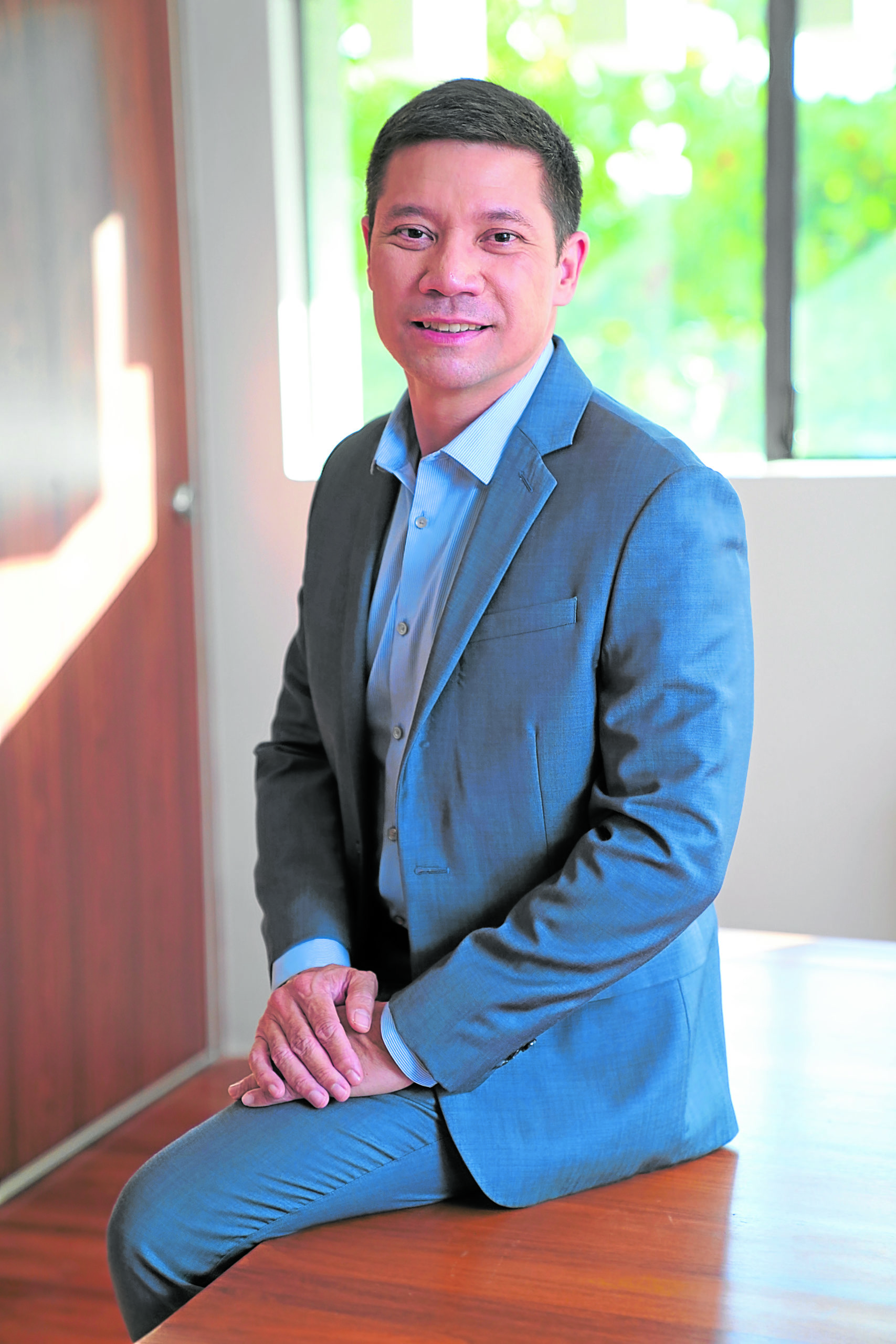 Tomas P. Lorenzo
Tomas P. Lorenzo
President and chief executive officer
Torre Lorenzo Development Corp.
This pandemic has been a pause for us rather than a full stop. It has allowed us to look at our processes and systems and recalibrate strategies where needed. We built on what worked, and improved or changed what didn’t.
Prioritizing the safety of our residents and employees has been a main guidepost for us. In keeping with our brand of providing uncompromising quality, we made sure that protocols were in place to ensure that both our residents and employees remained secure and safe. We listened to their feedback.
The pandemic has accelerated our shift to digitalization, and we aim to strengthen this further as we move ahead. We’re looking at a post-pandemic world, where most transactions can and should be done within one’s fingertips, in the comfort of one’s home. From our sales and marketing efforts to internal processes, we have ramped up our digital and automation efforts to promote efficiency.
Never stop learning, adapting
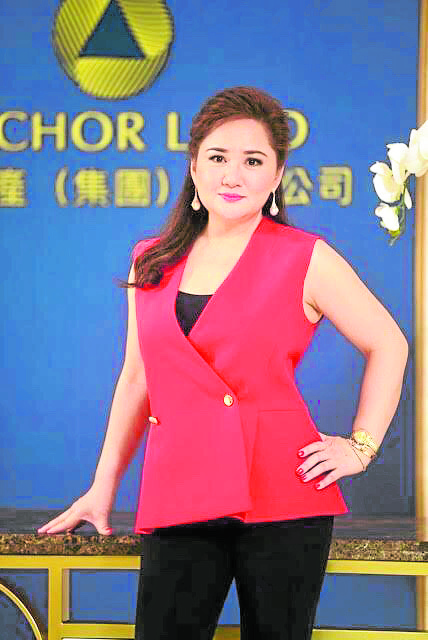 Elizabeth Ventura
Elizabeth Ventura
President
Anchor Land Holdings Inc.
If there is anything that the pandemic has given us, I think it is the reminder that we are strong enough, that we have the ability to adapt in the face of tribulations.
No one was spared in this crisis but everyone was flexible to go beyond our capabilities. We might be cocooned in our homes but in reality, we went out of our comfort zones to survive, thrive and navigate through the new world. Just like how the real estate goes full circle, it is our strength and flexibility that assisted our pivot.
Our key takeaway is to never stop learning and adapting. Looking at a post-pandemic world, we must improve our processes to be ready for anything. For instance, our divisions are stepping up to elevate our services. Our engineering teams have been working on strategies with our construction partners on recovering delays and coming out with preventative measures for the well-being and safety of our workers.
Finance and accounting are in touch with our buyers to provide necessary assistance with their financial burdens. Our design teams have been working on innovative solutions using the latest technology to offer future-proofed developments. Our sales and marketing have been aggressively engaging with our customers through all available digital platforms in preparation for our upcoming projects.
We take this challenge as an opportunity for us to learn and strengthen our resolves. Anchor Land has a solid foundation, and just like our people, we are resilient, adaptable and relentless. Together, we will see this through and come out even stronger.
Being nimble, creative, ready to pivot
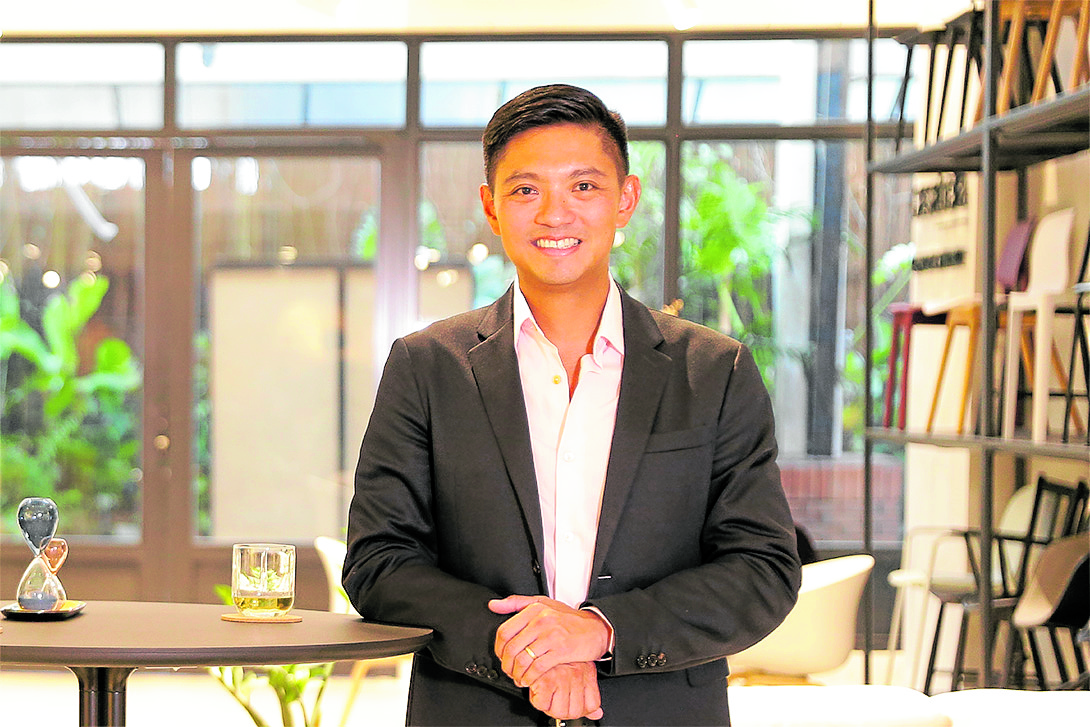 Ricardo “Cary” Lagdameo
Ricardo “Cary” Lagdameo
First vice president
Damosa Land
As with most other companies, the pandemic initially caused much anxiety and uncertainty. Early on though, we made it a point to buckle down, assess the situation, and play out several scenarios for the duration of the year (and next).
For our projects, construction had to be put on hold. There was nothing we could do about this. Hence, we focused on the controllable factors. Some of our processes were already in digital form so it became a matter of migrating a few other key functions to digital platforms.
With this, we moved most of sales and marketing online then added “virtual turnovers” and online payments. Even internal procedures such as document signing had to be done due to the work setup. With this, the company became more agile and we began to realize that we could address a broader market by performing these measures.
I would say that the key to our survival, aside from the measures mentioned, was a constant effort to assess the situation, assess what capital could be deployed, what needed to be pushed back, and most important, how our employees were dealing with the situation personally. We would literally do sanity checks every two weeks and for the projects, we would almost revise projections on a monthly basis. We still do this to date.
The company had been on pretty long growth streak for the past several years. While we are certainly blessed to have been able to grow at this pace, the pandemic taught us that several years work can almost be erased overnight. It’s quite humbling actually. This situation has really taught us to be nimble, creative, and ready to pivot at any given moment. This, as we would say, is our silver lining.
Moving forward, I hope that the company will never forget this experience. As we know, tough experiences (professional and personal) are what will shape us. I look forward to having an even more resilient and intelligent Damosa Land in the future.
Understanding one’s role amid the pandemic
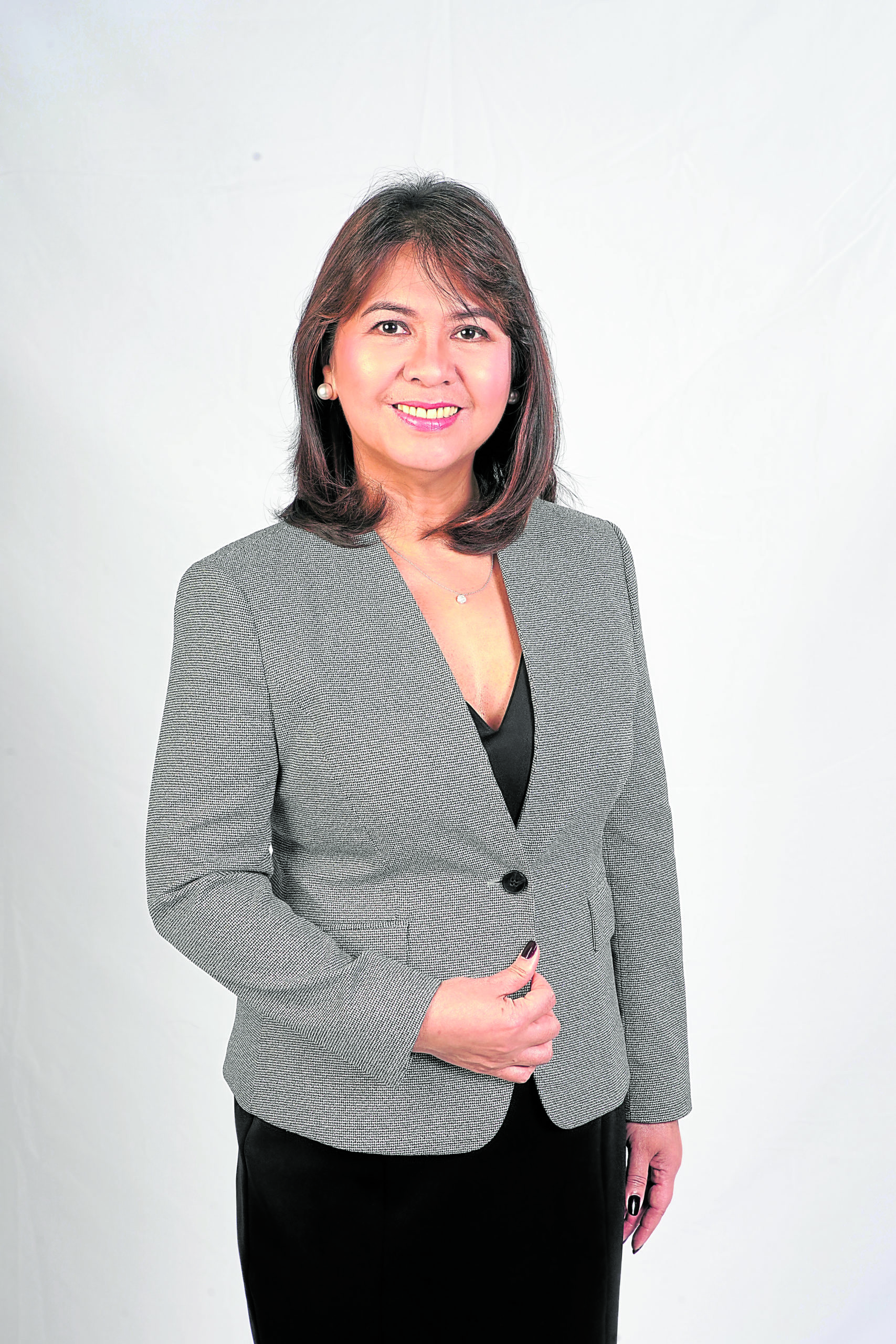 Lourdes Gutierrez-Alfonso
Lourdes Gutierrez-Alfonso
Chief operating officer
Megaworld Corp.
Today, there is more consciousness to address the plight of other people. There is a growing awakening for generosity and compassion. We are also giving focus on how we can help in the country’s recovery from the pandemic. As a real estate company, we realized our role in helping our country rise from the challenges especially in the provinces, where we have strong presence.
This pandemic has also allowed me to clearly see how significant it is to continue upholding the core values of our company, including excellence and creativity. I am fortunate to be working with leaders who empower others and make use of challenges to do excellent things.
I have held onto my faith and believed that all things work together for good for those who trust Him and that what we are facing right now is only preparing us for the beautiful things that are set to come our way.
It is important that we continuously remind ourselves why we are in this business. We have to anchor our every day to a certain purpose.
The pandemic gave me the time to assess and reassess what is important to all of us: safe spaces where we can spend time with our loved ones and continue being productive. I believe that this is something that we in the real estate industry fully understand now.
Holding on to our core values as we pursue our vision of uplifting lives, impacting society, and helping shape the nation is also something that we continuously strive to uphold.
A staunch commitment to Filipinos
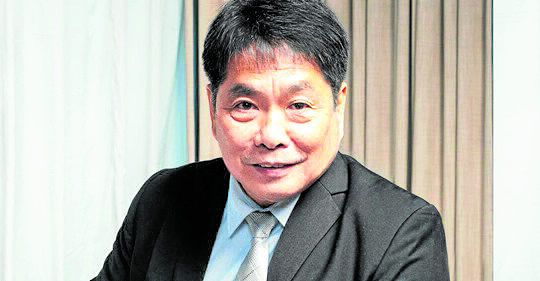 Exequiel Robles
Exequiel Robles
President
Sta. Lucia Land Inc.
These are challenging times for us but I was quite confident that our resilient spirit will allow us to once again get through this. We have already been through a lot and we’ve proven how—with the concerted efforts of families, friends and colleagues, given partnerships between the private sector and the government—we would eventually hurdle through crises, calamities, disasters and other emergencies.
During this quarantine, we were all forced to spend more time at home. I myself had to stay put during this period, unlike before that I would always be out and on the ground, across key and emerging provincial cities, scouting for new and better opportunities for Sta. Lucia Land. And as we got to stay in, many of us had started to see our homes in a whole new light. Our homes now serve as an office, learning space, entertainment and wellness hub among other purposes.
If there’s anything that this pandemic has made us realize is that our homes will always be our safe space, a sanctuary where you can find respite and comfort. It also made us realize even more the value of the work that we do. This is why we are now more committed than ever to our vision and mission, to create such conducive, future-proof spaces where families can grow, thrive and become truly resilient. Given all these new priorities and renewed focus on spaces, health and well-being, trust that Sta Lucia Land will continue to work hard to deliver the kind of home and community that you deserve with or without a pandemic. We will continue to soldier on building that legacy and bringing Filipinos from around the world at home with their families. This will be our staunch commitment to all hardworking Filipinos here and abroad.
Read more: https://business.inquirer.net/313274/learnings-from-the-pandemic#ixzz6ipWoM9I9
Follow us: @inquirerdotnet on Twitter | inquirerdotnet on Facebook
